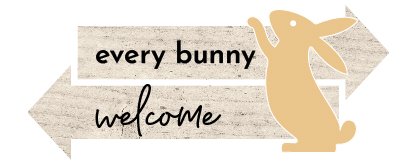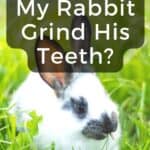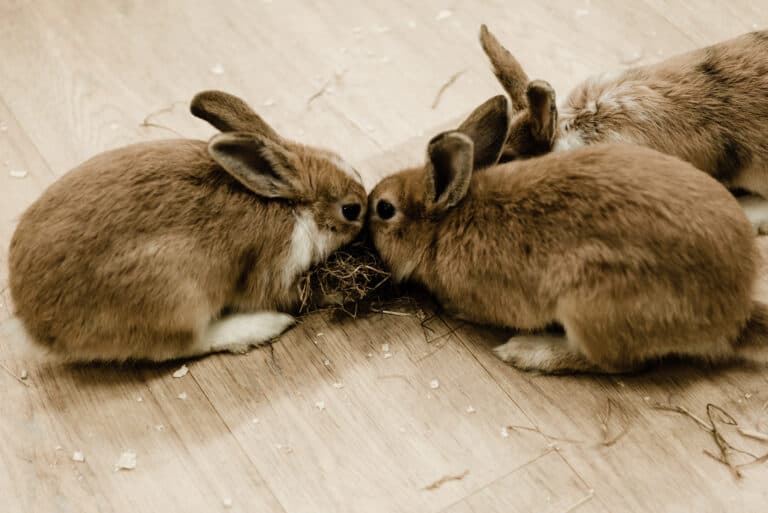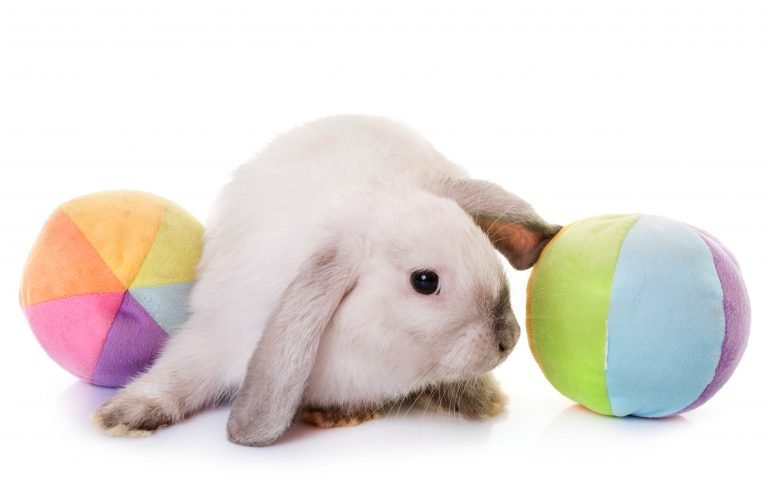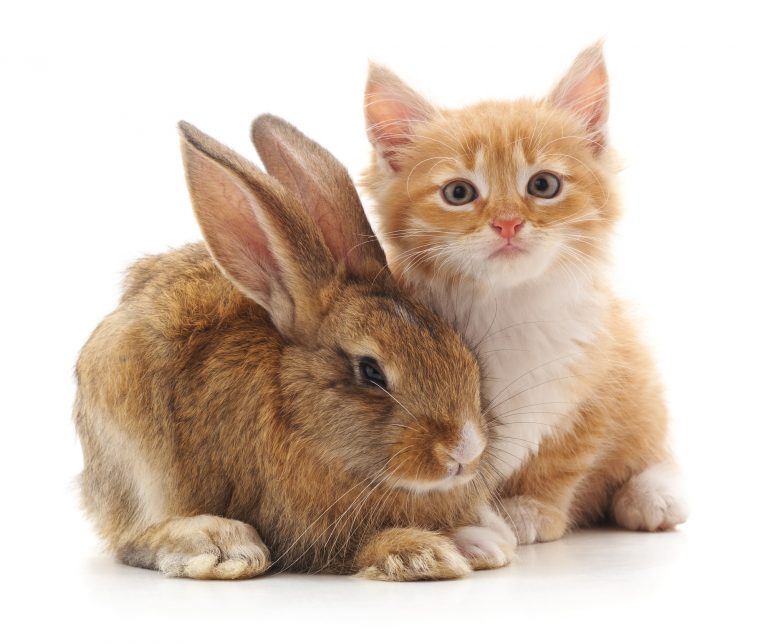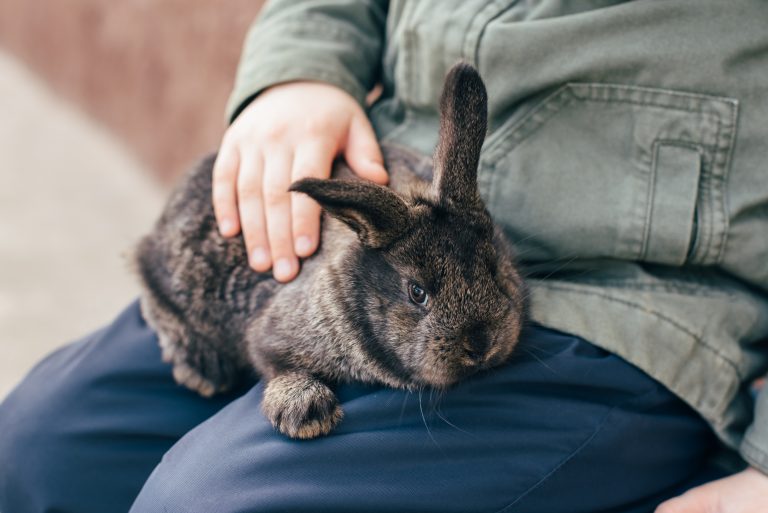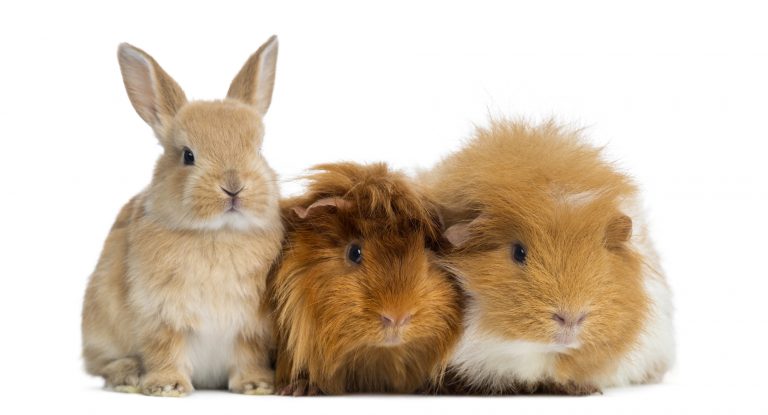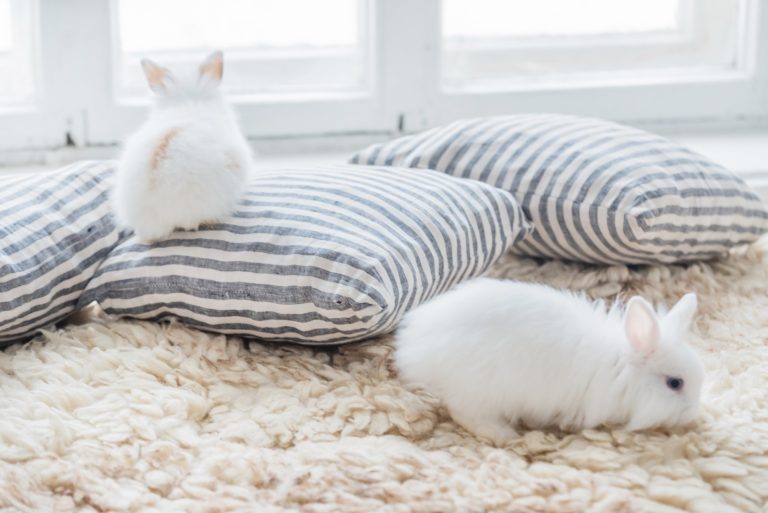Why Does My Rabbit Grind His Teeth?
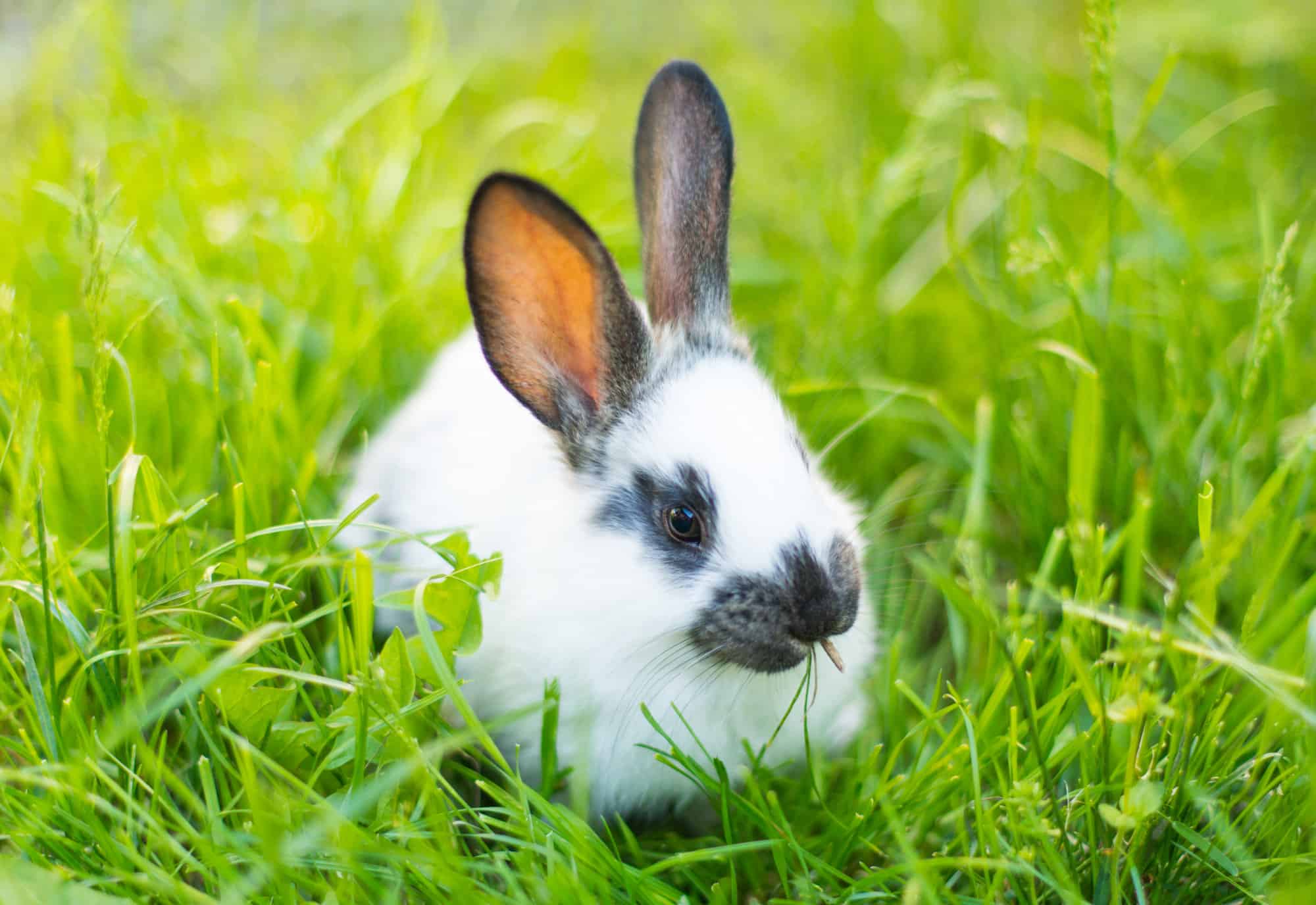
Rabbits can’t talk. They also don’t make sounds that are unique to their species the way cats and dogs do. Still, they have their way of communicating with their kind and with their humans as well. They do this through their body language and by making a variety of sounds. The thing is, it’s not always easy to decipher what those sounds and gestures mean. Take tooth grinding, for example. If your bun does this, you’re likely to wonder why your rabbit grinds his teeth.
This post contains affiliate links. Affiliate links support Every Bunny Welcome at no additional cost to you. I receive a commission if you choose to make a purchase through these links.
Rabbit Teeth-grinding: What Does It Mean?
There are two types of tooth-grinding and what they mean depends on how they sound. You’ll also need to take note of other signs to determine how your bun feels.
1. Quiet tooth-grinding (also called teeth-chattering)
Similar to a cat’s purr, this is a soft sound rabbits create when they grind their front teeth. They do this to wear down their pearly whites, and more often, to indicate pleasure or contentment. You’re likely to hear this sound when stroke your bunny.
2. Loud tooth grinding
While teeth-chattering usually indicates satisfaction, loud tooth-grinding is a classic sign that your rabbit is in pain, especially if other indications of discomfort accompany the sound.
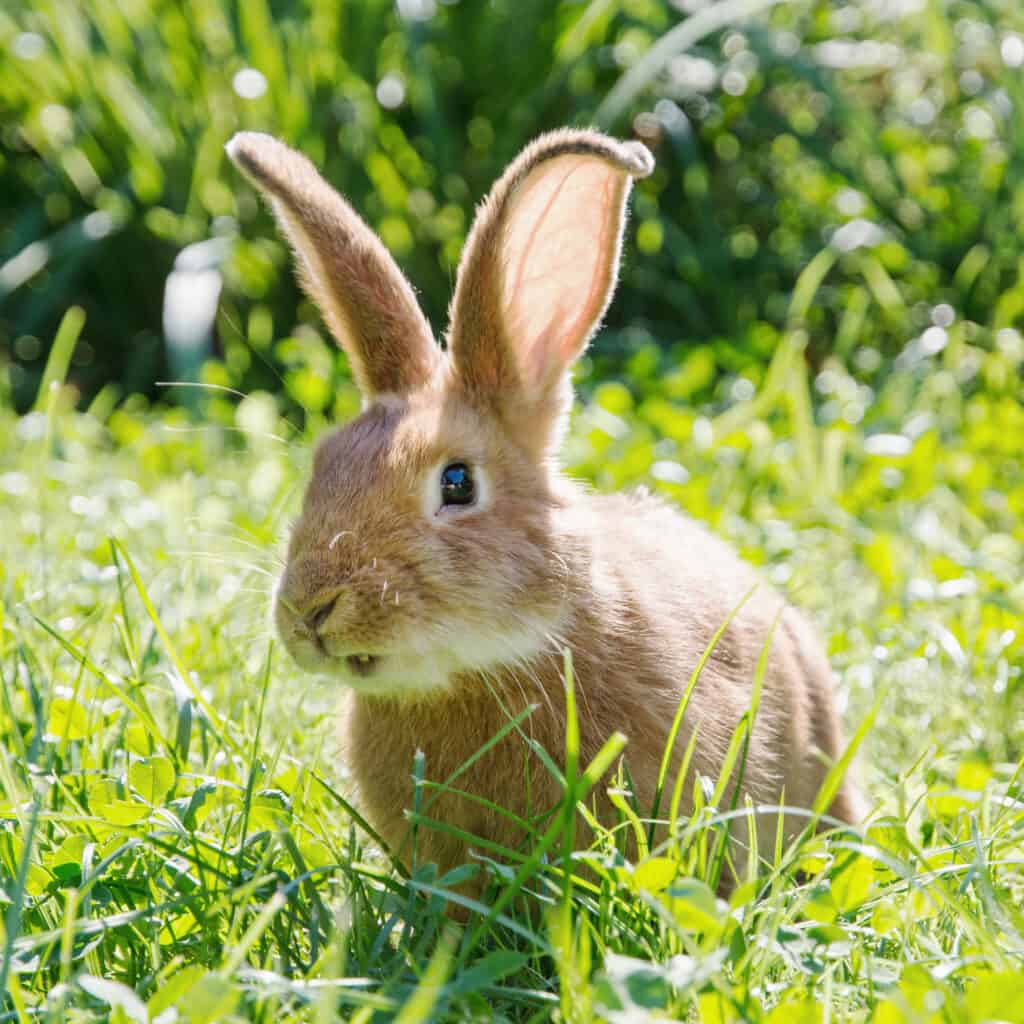
The Difference Between Tooth-chattering and Tooth-grinding
If you’ve just brought your pet home or you’re a new bun-parent, you may not be able to easily discern if the noise your rabbit makes is due to pain or contentment.
Here’s how to differentiate between the two sounds:
- Volume and frequency: Teeth-chattering is a soft, gentle, and even melodious sound. It’s smooth and continuous, and the delicate clicking is pleasing to the ears. In contrast, tooth-grinding is louder, occurs farther apart, and doesn’t sound pleasant at all.
- Accompanying eye movements: When a rabbit’s teeth chatter out of contentment, he usually closes his eyes while making the clicking noise. On the other hand, bulging eyes may accompany the grinding sound a bun in pain makes.
- Body language: A bun who looks relaxed while gently grinding his teeth may be demonstrating contentment and happiness. Meanwhile, a hunched, tense posture, freezing in place, and shaking indicate pain in a bunny.
How to Tell If Pain Is Behind Your Rabbit’s Tooth-grinding
Along with tooth-grinding, rabbits who are sick or in pain may display the following signs:
- Aggression: Your bun may nip or growl at you when you try to pick him up.
- Low energy: Rabbits are most active during dusk and dawn. But a bun who’s in pain will likely sit around all day.
- Lack of appetite: Rabbits love to eat so when they refuse those leafy greens and tasty treats, that means there’s something wrong with them.
- Hiding or avoiding your touch: If your pet, who usually loves to sit on your lap, suddenly shies away from your touch, he may be feeling achy from a health issue.
- Changes in grooming habits: Over-grooming or lack of interest in cleaning themselves may indicate anxiety, stress, or pain in rabbits.
- Drooling: Respiratory infections and dental problems usually cause this condition.
- Inability to sleep: Soreness from an injury or illness can keep a rabbit awake.
- Agitation: Rabbits who feel pain may appear restless as they keep changing their position to find relief from the discomfort.
- Strange or awkward posture: A rabbit with an injured foot, for example, may avoid putting weight on it, forcing him to sit in an awkward position.
- Rapid breathing: Respiratory ailments can make a rabbit breathe faster than normal. The distress caused by pain can also lead to rapid breathing.
How Do You Relieve Your Bunny’s Pain?
You first need to determine what’s causing the pain before you can provide relief for your pet. Infections will require vet-prescribed antibiotics. With degenerative conditions like arthritis, health supplements can help ease your bun’s pain.
Dental issues, such as overgrown teeth and gum disease need the attention of a vet who may prescribe oral pain relievers or surgical intervention, if necessary.
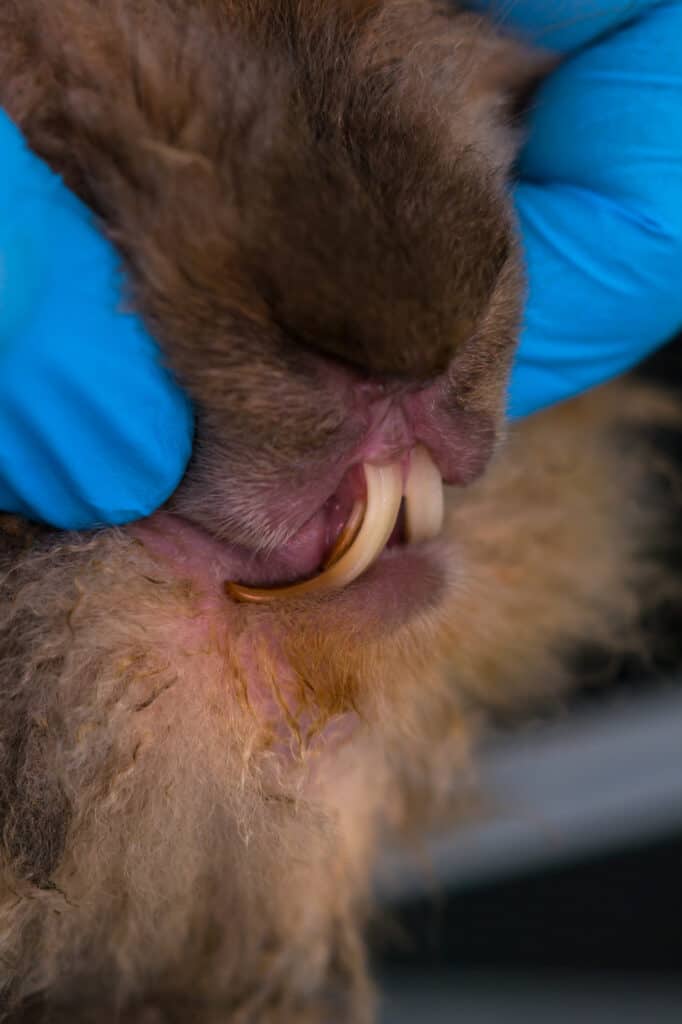
FAQs
It’s unlikely that a rabbit who feels relaxed enough to fall asleep is stressed out or in pain. So it’s safe to assume that the teeth-grinding they make is the positive kind. Or, if ever anxiety is behind the tooth-grating, this may be caused by a bad dream.
Your rabbit may have a condition called ptyalism, leading to an over-production of saliva. Dental issues are one of the common reasons for excessive salivation. Rabbits with ptyalism experience a lot of pain, which is why they also grind their teeth.
Because of the misery this ailment causes, you need to take your bun to the vet if he exhibits drooling and teeth-grinding. Your pet’s doctor can then assess the best way to address the issue.
The distress that causes your bun to grin his teeth may very well be mental in nature and when your bun feels anxious or scared, he may grate his teeth to try and soothe himself. Rabbits, being vulnerable animals, are easily stressed. So try to determine what’s triggering your pet’s anxiety and eliminate the cause. The sooner you do so, the better because too much stress can lead to a heart attack.
Various reasons can cause your bun to stop eating. If he grinds his teeth as well, it usually means he’s in pain or suffering from a health issue. A rabbit who won’t eat needs prompt medical attention as the lack of food in the stomach can lead to a serious condition called gastrointestinal (GI) stasis.
Possible explanations for your bun’s teeth-grinding and lack of appetite include the following:
Fear and stress
Overgrown teeth
Infection
Intestinal blockage
As you can see, the reasons why your bun grinds his teeth are many. Pinpointing the cause behind the sound he creates may be difficult at first. But in time, as you become familiar with your pet and his mannerisms, you’ll know if you need to worry when you hear his teeth chatter.
More on Rabbit Behavior
- Understanding 15 Rabbit Noises and What They Mean
- Why Do Rabbits Lick You? 11 Reasons for This Common Behavior
- Are Rabbits Nocturnal? Tips for Nighttime Activity
- Why Does My Rabbit Nudge Me?
- Can Rabbits See in the Dark?
We hope you enjoyed this post! If you did, will you give it a share or two 🙂 Thank you! ~from Every Bunny Welcome
